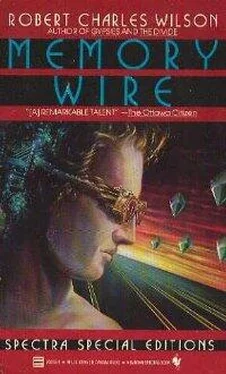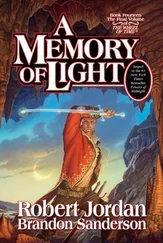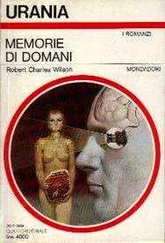Robert Wilson - Memory Wire
Здесь есть возможность читать онлайн «Robert Wilson - Memory Wire» весь текст электронной книги совершенно бесплатно (целиком полную версию без сокращений). В некоторых случаях можно слушать аудио, скачать через торрент в формате fb2 и присутствует краткое содержание. Год выпуска: 1987, ISBN: 1987, Издательство: Bantam Spectra, Жанр: Фантастика и фэнтези, на английском языке. Описание произведения, (предисловие) а так же отзывы посетителей доступны на портале библиотеки ЛибКат.
- Название:Memory Wire
- Автор:
- Издательство:Bantam Spectra
- Жанр:
- Год:1987
- ISBN:978-0-553-26853-9
- Рейтинг книги:4 / 5. Голосов: 1
-
Избранное:Добавить в избранное
- Отзывы:
-
Ваша оценка:
- 80
- 1
- 2
- 3
- 4
- 5
Memory Wire: краткое содержание, описание и аннотация
Предлагаем к чтению аннотацию, описание, краткое содержание или предисловие (зависит от того, что написал сам автор книги «Memory Wire»). Если вы не нашли необходимую информацию о книге — напишите в комментариях, мы постараемся отыскать её.
Memory Wire — читать онлайн бесплатно полную книгу (весь текст) целиком
Ниже представлен текст книги, разбитый по страницам. Система сохранения места последней прочитанной страницы, позволяет с удобством читать онлайн бесплатно книгу «Memory Wire», без необходимости каждый раз заново искать на чём Вы остановились. Поставьте закладку, и сможете в любой момент перейти на страницу, на которой закончили чтение.
Интервал:
Закладка:
He would risk his life for Pia’s sake. Gladly. But if the military police took him—what then?
This damn piece of rock, he thought. But then, holding it, he felt some of its strangeness radiate through him. He was momentarily overcome with a memory of Pia running to him outside the door of their two-room house in Cubatao… and it occurred to him that the dreamstone had helped to keep him honest these three years in Pau Seco; that another man, or a man without a stone, might have allowed the past to float away from him, might have made a new life for himself and indulged in the luxury of forgetting. Meirelles had not had that privilege.
Abashed, he wrapped the stone in a length of oilcloth and tucked it into his pants.
It was dark outside now. Fires were burning in oil barrels up and down these ragged hills. From the old town the sound of human voices had begun to rise in pitch and tempo.
It was time to go meet Ng.
The bar had no name. None of the bars in the old town of Pau Seco had any names. They were interchangeable, they performed the same function, so there was no reason to call a bar by this name or that. Meirelles recognized the one he wanted because it was at the intersection of the mine road and the dirt path that divided the barrios. He hesitated a final time at the door. His fear now was profound.
As he was walking here, he had passed the hill where Ng had his shack. As his head was turned in that direction, two burly military police had rushed past him; stunned, he watched a half-dozen more making their way up the slope, their high-pressure arclights drilling into the darkness. There was no question where they were headed. They were looking for Ng. They knew his name and knew where he lived.
Ng might know about this or he might not. Either way, Meirelles thought, the Vietnamese might still be inside the bar. Waiting. Ready to deal. Meirelles thought of the money and licked his lips.
But if the police are looking for Ng, he thought, they can’t be far from finding him. There were police all over the streets. They might be inside, waiting for the exchange to happen; they might arrest him too. Or Ng might take the stone and refuse to pay. Meirelles was powerless; the stone itself was his only weapon.
He closed his eyes and shouldered through the door, sighing.
But there was only the usual dimness and clangor inside. The stink of cachaca and cheap beer made him blink; the pressure of warm bodies forced him up against the wall. He was acutely aware of the oneirolith against his body. In a moment his eyes had adjusted to the flickering lamplight, and he looked for Ng at the corner table where they had met a month ago. Ng was there.
He was there with three others. Ng wore his usual torn T-shirt and ragged denims. The others were dressed similarly, but with dust caps pulled down over their eyes in the style favored by the younger formigas who migrated in from the cities. A kind of disguise, Meirelles thought, though not very effective, and in this heat it must be excruciating. Because he saw no sign of the military police, Meirelles worked his way toward the table, wedged his body into a chair and waited for Ng to speak.
“You have it?” Ng said softly.
And Meirelles felt his heart sink. It was obvious from the Vietnamese man’s attitude—cavalier, almost amused— that he knew nothing about the police raid on his shack, probably had not guessed that the police were looking especially for him.
Meirelles thought: and if I tell him?
He peered at Ng’s companions. Three of them. Two men and a woman. The man on the left was tall, an American probably, with a careful expression and eyes that lingered a heartbeat too long on Meirelles’s own. The man on the right was smaller and more obviously nervous, his hair long and dirty white. The woman between them was in a subdued way beautiful, but very distracted: her hands wrestled with themselves, her brow knotted into a frown.
Ng thought, She’s the one who wants the stone.
“It’s here,” he said hoarsely, in English. “It’s here… I have it.”
He saw the subtle light in Ng’s dark eyes.
“Give him the money,” Ng said.
The white-haired American said, “I don’t see the stone.”
The woman touched the man’s hand: some kind of subtle communication, perhaps a warning. And the tall American watched.
The white-haired man sighed, reached into his pocket, and drew out two slips of paper. One for Ng, one for him. So flimsy! Meirelles thought. It seemed for a moment a stupid exchange—the oneirolith, a solid thing, for this note.
He unfolded it and looked at it long enough to establish that it at least seemed legitimate: a Bradesco bank certificate, the amount in cruzeiros so large that it made his head swim. “All right,” he heard himself say, “yes.”
Ng pocketed his own money and smiled.
Meirelles brought out the oneirolith in its wrapping of dirty oilcloth. The white-haired American eyed it suspiciously. “How do we know it’s what we want?”
But the woman touched his hand again. “It’s what we want.”
She feels it, Meirelles thought. She’s sensitive to it. He watched as she reached for the stone, and he felt the hesitation in her, her respect for it. “Take it,” he said. “Touch it. It won’t affect you through the cloth.” She didn’t understand his Portuguese but seemed to take solace from the tone of his voice.
Ng took Meirelles’s hand and shook it across the table, the bargain completed.
Now, Meirelles thought. If he meant to tell them about the military police, he must say something now. If they left in ignorance, they might walk back to Ng’s home and into the hands of the police.
And if Ng knows, Meirelles thought… will he want the money back?
He felt the bank certificate in his pocket, a warm presence. A ticket back to his wife and child. A ticket out of Pau Seco and a ticket out of Cubatao. A piece of paper containing a better life.
He drew back his hand as Ng stood up. The Americans hovered above him.
“Wait,” he said.
Ng narrowed his eyes. “What is it?”
Meirelles felt the sweat beading on his forehead. He looked into the face of the Vietnamese. It was not the sort of face he was accustomed to. He didn’t know how to read it.
“The police,” he said faintly. “You’ve been betrayed.”
Ng regarded him gravely for a long beat. He bent down with his knuckles on the small wooden table and his gaze was terrible, riveting. Meirelles could not look away. Spare me, he thought inanely.
But Ng only shook his hand a second time.
“Thank you, Roberto,” he said. “Thank you for telling me.”
The three Americans followed him out.
CHAPTER 11
1. Ng described a place down the road and told them to wait there. A truck would come, he said.
“It could be a trap,” Byron said. “He could be selling us out.”
Keller anticipated an angry reaction from the Vietnamese. But Ng only shook his head. “I have my own kind of virtue,” he said. “I stay bought.”
So they hiked down the road that ran from the mines through the old town, sheltered by their clothes and the night and the press of human bodies around them. They avoided the trash fires and walked with their shoulders bent, purposefully but not too fast, alert for police patrols. Beyond the limits of the town they kept to the shadow of the forest wall. A barrel-ribbed dog paced them for a quarter of a mile, loping on three legs; Byron threw a stone to drive it away.
In time they came to the place Ng had described, an opening in the road where a logging trail joined it from the west. Midnight had come and gone and there was very little traffic. Twice, big antique diesel semis roared by on their way to Pau Seco. Once, ominously, a military transport. But mostly the road was empty, the night noises of the forest ringing in the darkness.
Читать дальшеИнтервал:
Закладка:
Похожие книги на «Memory Wire»
Представляем Вашему вниманию похожие книги на «Memory Wire» списком для выбора. Мы отобрали схожую по названию и смыслу литературу в надежде предоставить читателям больше вариантов отыскать новые, интересные, ещё непрочитанные произведения.
Обсуждение, отзывы о книге «Memory Wire» и просто собственные мнения читателей. Оставьте ваши комментарии, напишите, что Вы думаете о произведении, его смысле или главных героях. Укажите что конкретно понравилось, а что нет, и почему Вы так считаете.












